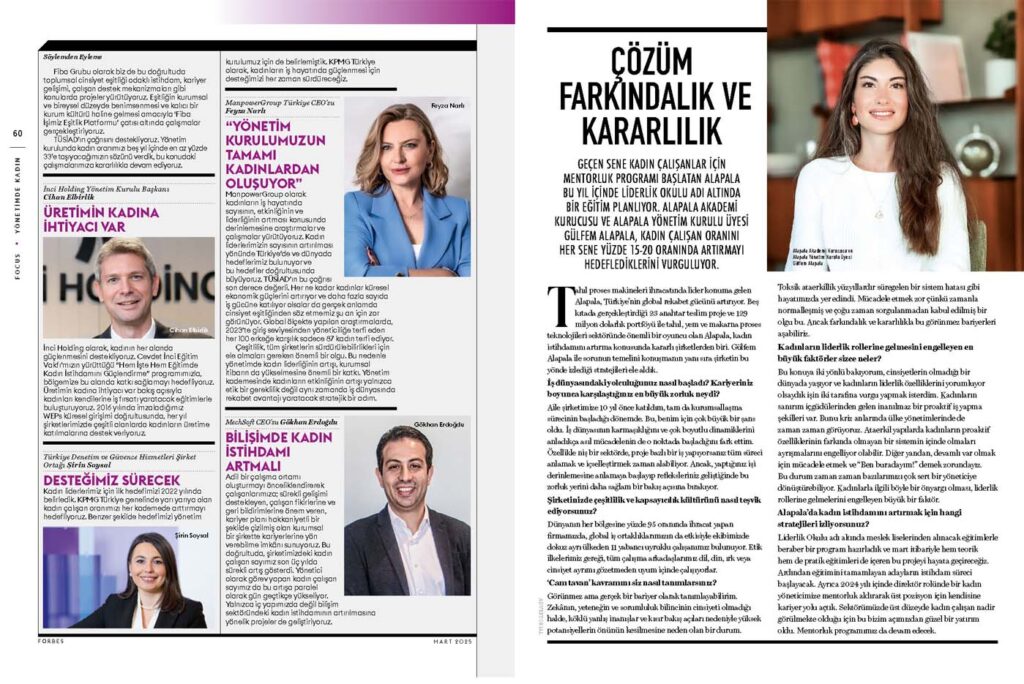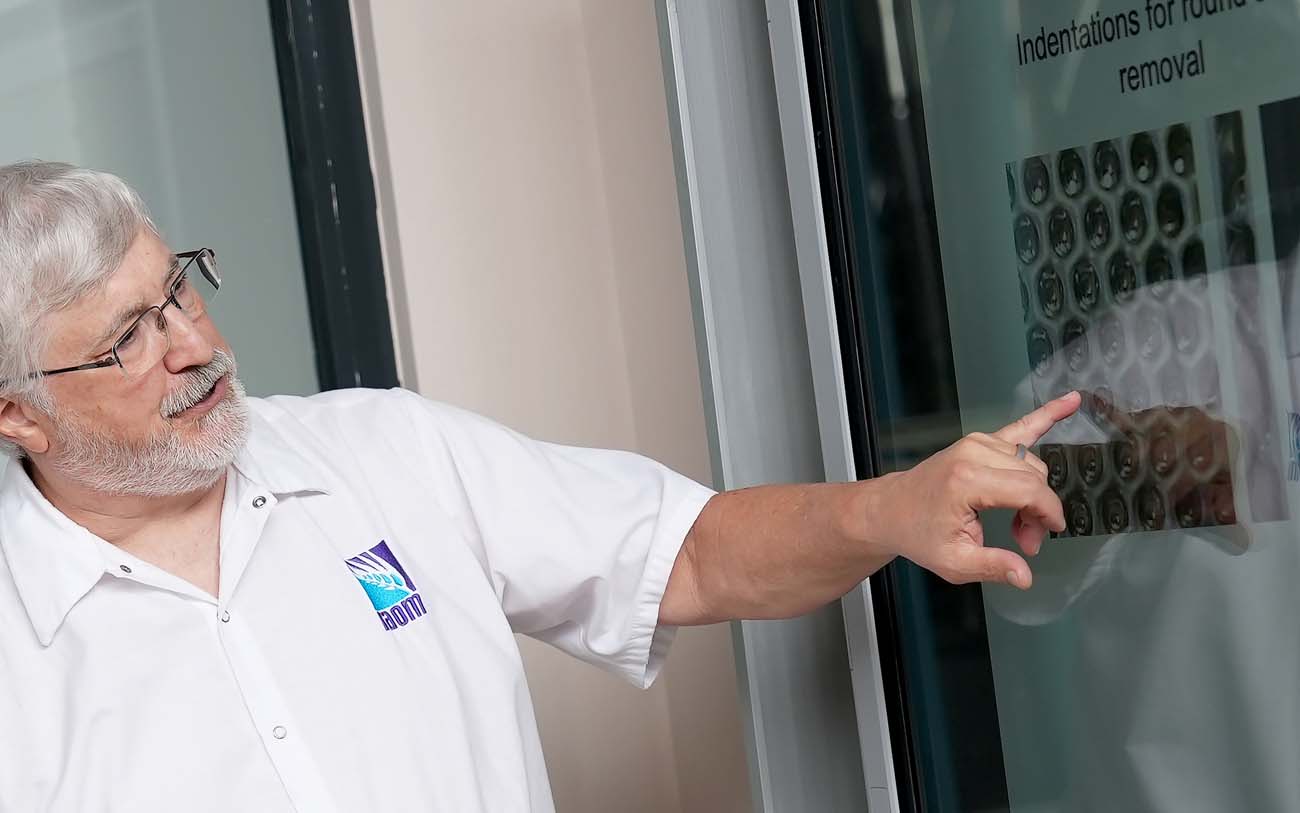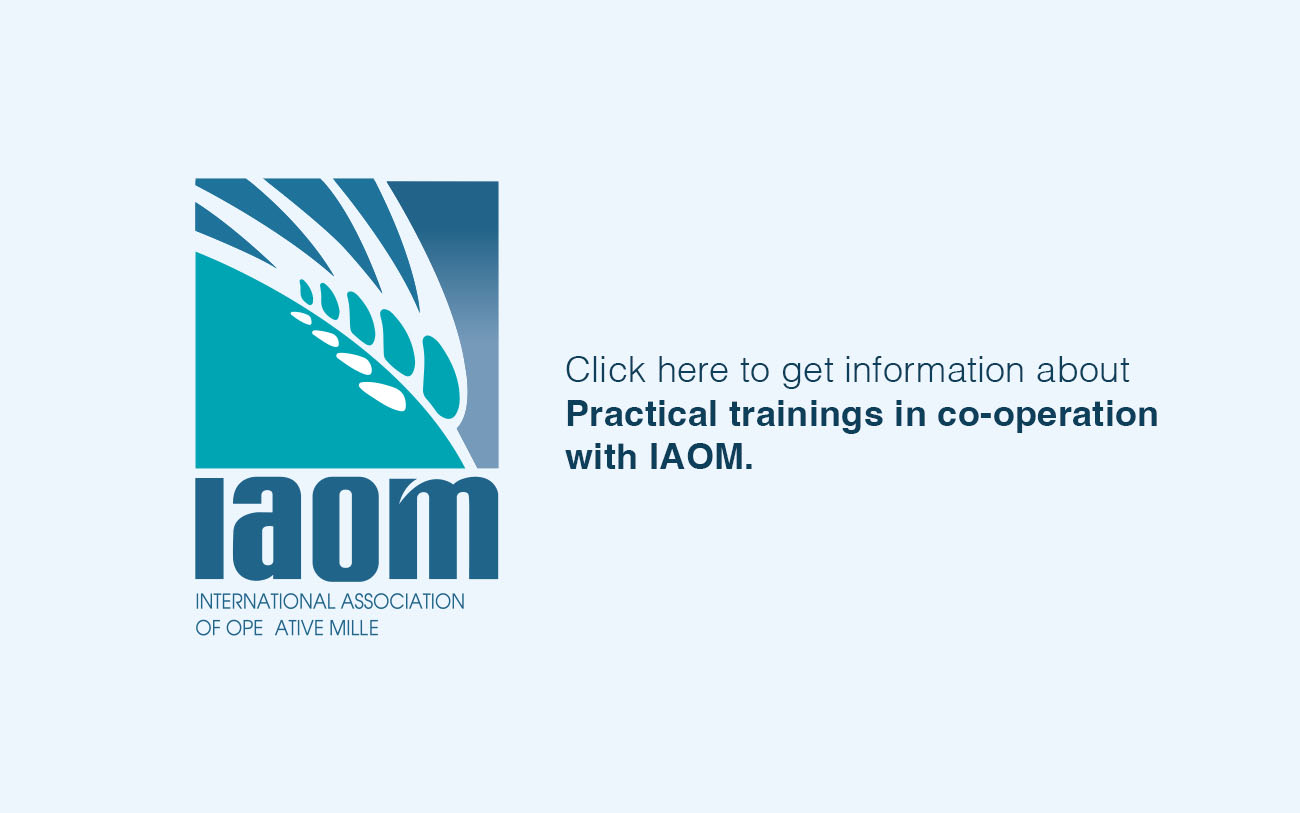Solution Awareness And Determination
After Launching A Mentorship Programme For Female Employees Last Year, Alapala Is Planning An Education Programme Called The Leadership School For This Year. Gülfem Alapala, Founder Of Alapala Academy And Member Of The Alapala Board Of Directors, Emphasises That They Aim To Increase The Percentage Of Female Employees By 15-20 Percent Each Year.
Alapala, which has become a leader in the export of grain processing machinery, is increasing Turkey's global competitiveness. With 23 turnkey projects across five continents and a portfolio worth $129 million, Alapala is a major player in the grain, feed and pasta processing technology sector and is one of the companies committed to increasing female employment. In addition to discussing the root of the issue with Gülfem Alapala, we also examined the strategies the company is pursuing in this direction.
How did your journey in the business world begin? What has been the biggest challenge you have faced throughout your career?
‘I joined the family business ten years ago, right at the start of the institutionalisation process. This was a huge opportunity for me. As I came to understand the complexity and multidimensional dynamics of the business world, I realised that the real challenge had begun. In a niche sector, especially in project-based work, it can take time to understand and internalise the entire process. However, once you deeply understand your work and develop reflexes, this challenge gives way to a more solid perspective.
How can you promote a culture of diversity and inclusion in your company?
Our company exports 95% of its products to every region of the world, and thanks to our global business partnerships, 11 of our employees are from nine different countries. In accordance with our ethical principles, all our colleagues work together harmoniously regardless of language, religion, race or gender.
How would you define the concept of the ‘glass ceiling’?
I would describe it as an invisible but real barrier. Despite the fact that intelligence, talent, and a sense of responsibility have no gender, deep-rooted misconceptions and narrow-minded perspectives prevent high-potential individuals from reaching their full potential. Toxic patriarchy has become ingrained in our lives as a systemic flaw that has persisted for centuries. It is difficult to fight because it has become normalised over time and is often accepted without question. However, with awareness and determination, we can overcome these invisible barriers.
What do you think are the biggest factors preventing women from taking on leadership roles?
I look at this issue from two angles. If we were living in a world without gender and interpreting women’s leadership qualities, I would emphasise both sides of the issue. I think women have an incredible proactive way of working that comes from their instincts. We sometimes see this in times of crisis in the management of countries. In patriarchal structures, the fact that women are part of a system that is unaware of their proactive qualities may prevent them from standing out. On the other hand, we have to fight to continue to exist and say, ‘I am here!’ This situation can sometimes turn some of us into very harsh managers. Such a prejudice against women is a major factor preventing them from taking on leadership roles.
What strategies are you following to increase female employment at Alapala?
We have prepared a programme under the name of Leadership School, which will include training from vocational high schools, and we will launch this project in March, which will include both theoretical and practical training. After that, the employment process for candidates who have completed their training will begin. Additionally, in 2024, we provided mentorship to a female manager in a director role, opening up a career path for her to advance to a senior position. Since senior-level female employees are rare in our industry, this was a worthwhile investment for us. Our mentorship programme will continue.







